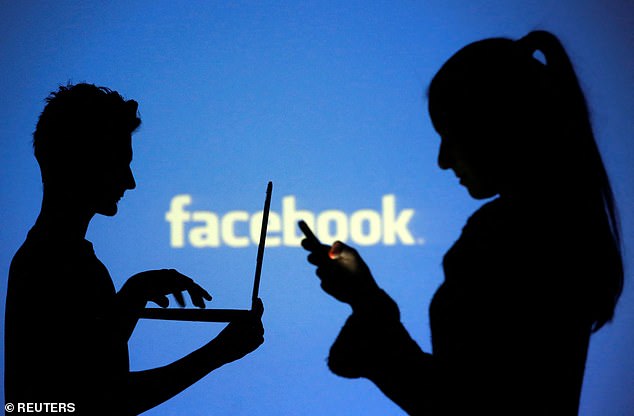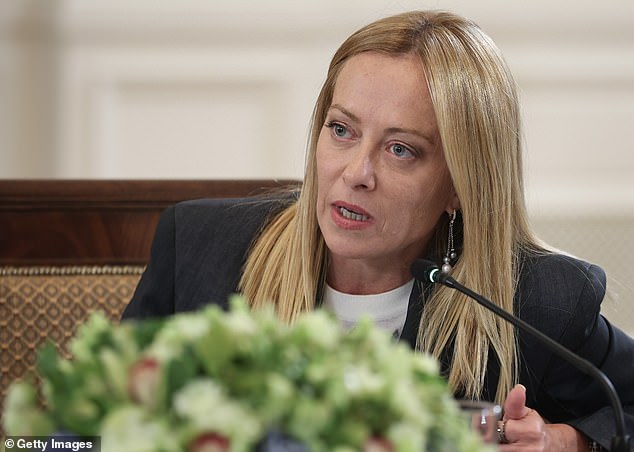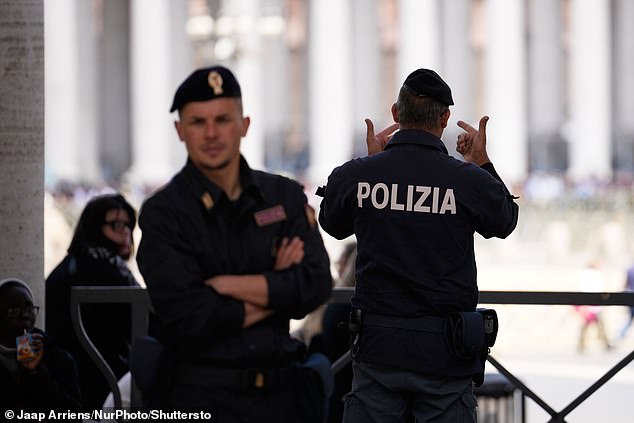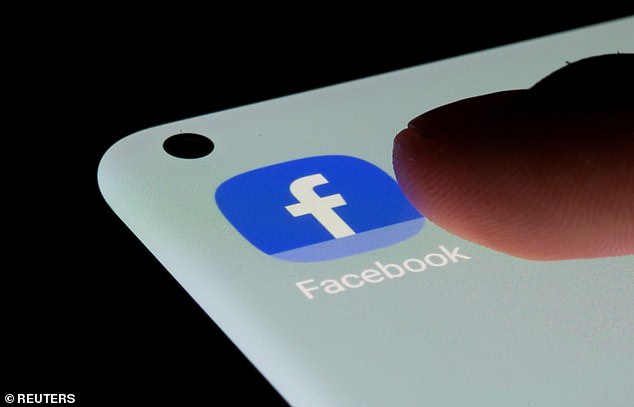Italy has been rocked by scandal after the exposure of a shocking Facebook group where men secretly shared intimate photos of their wives to thousands of strangers.
Outrage has gripped the country with politicians likening the group to ‘virtual gang rape’ and drawing comparisons to the case of Gisèle Pelicot, who was drugged and raped by her husband and his friends for years.
The Mia Moglie Facebook group, which translates as My Wife, was shut down this week after accumulating over 32,000 members since being founded in 2019.
Men would brazenly post pictures to the group of their wives in intimate states, undressed or asleep, without their consent.
Posts were flooded with vile comments, including other men saying they wanted to ‘rape’ the women in question, with others praising the secretive nature of the pictures.
Meta, which owns Facebook, closed the page last week ‘for violating our Adult Sexual Exploitation policies’.
‘We do not allow content that threatens or promotes sexual violence, sexual abuse, or sexual exploitation on our platforms. If we become aware of content that incites or advocates rape, we may disable the groups and accounts that post it and share this information with law enforcement,’ a Meta spokesperson said.
The page was founded six years ago but it is unclear exactly how long explicit pictures had remained online.

Italy has been rocked by a ‘virtual gang rape’ scandal after the exposure of a shocking Facebook group where men secretly shared intimate photos of their wives

More than 50% of Italian women say they have been the victim of harassment or assault by the time they reach 19. (Stock image)

The right-wing government led by Giorgia Meloni is under growing pressure from opposition parties to take action against sexism
The sharing of sexually explicit images or videos which were supposed to remain private as well as revenge porn were made illegal in Italy in 2019.
The disturbing group was first publicized by writer Carolina Capri, who said she felt ‘nauseous’ and ‘scared’.
The sharing of intimate photographs without consent amounts to ‘virtual gang rape’, she said.
Meanwhile, more than a thousand people have reported the group to the police for cyber crime, Italian media reports.
Lawyer Marisa Marraffino, who specialises in online criminal cases, told the Financial Times that those who shared or commented on the pictures could face up to six years in prison for illegal sharing of intimate images, privacy violations, aggravated defamation and even child pornography.
The exposure of Mia Moglie has uncovered tensions over the patriarchal nature of Italian society.
More than 50% of Italian women say they have been the victim of harassment or assault by the time they reach 19.
They are also the least likely to be in full-time employment of any EU country, with a gap of 20 percentage points between genders, according to latest data from the European Institution for Gender Equality.

More than a thousand people have reported the Facebook group to the police for cyber crime, Italian media reports

Meta , which owns Facebook, closed the page last week ‘for violating our Adult Sexual Exploitation policies’
The country also ranks below EU averages in gender equality in work, earnings and education.
‘This linking of violence to sexuality is so ingrained in our culture that in a public group, men write without hiding their names and faces,’ Capri added.
The right-wing government led by Giorgia Meloni is under growing pressure from opposition parties to take action against sexism.
Left-wing party the Five Star Movement said it would ask the government to respond to the ‘unacceptable patriarchal mentality that reduces women to objects and instruments of possession’.
Fiorella Zabatta, of the European Greens party, said she would file a report with the Public Prosecutor’s Office.
‘This is virtual rape, a crime punishable under our penal code,’ she said. ‘But the problem isn’t only legal, it’s also cultural. These kinds of platforms must be fought against, and this toxic idea of masculinity must be confronted.
‘We all need to take action: civil society and politics alike.’












